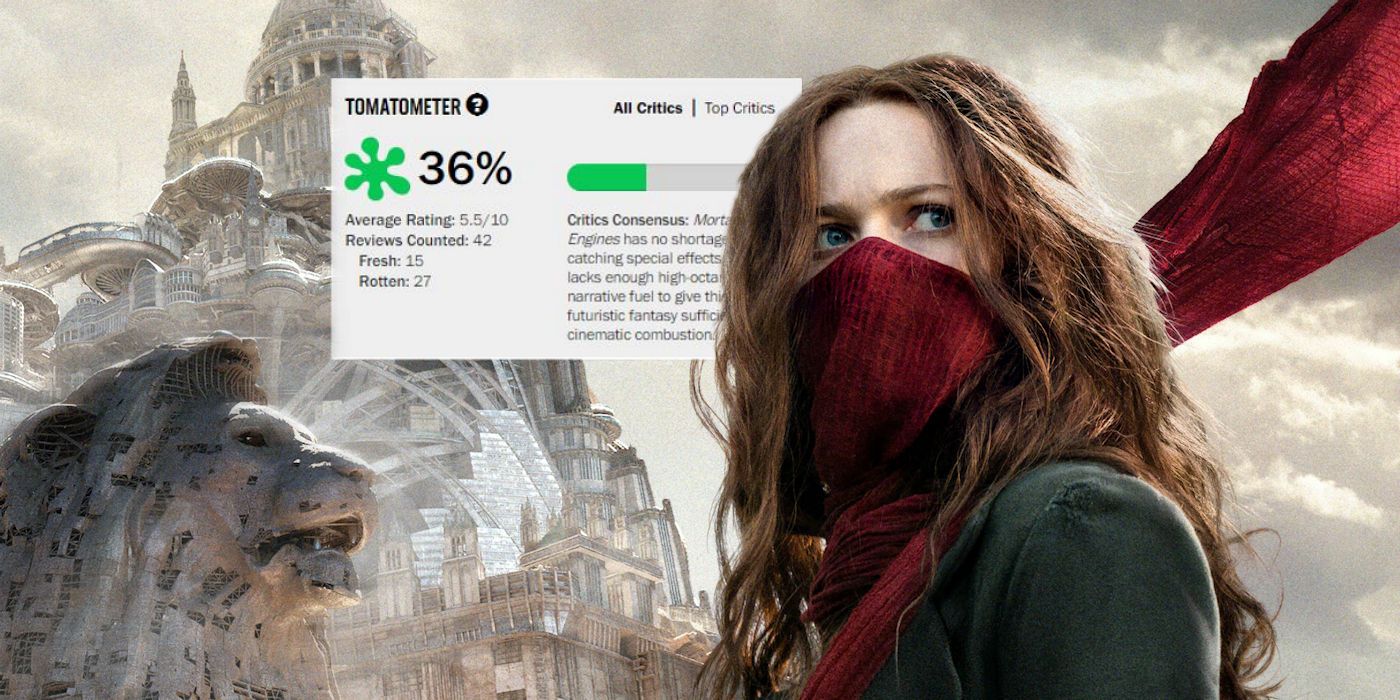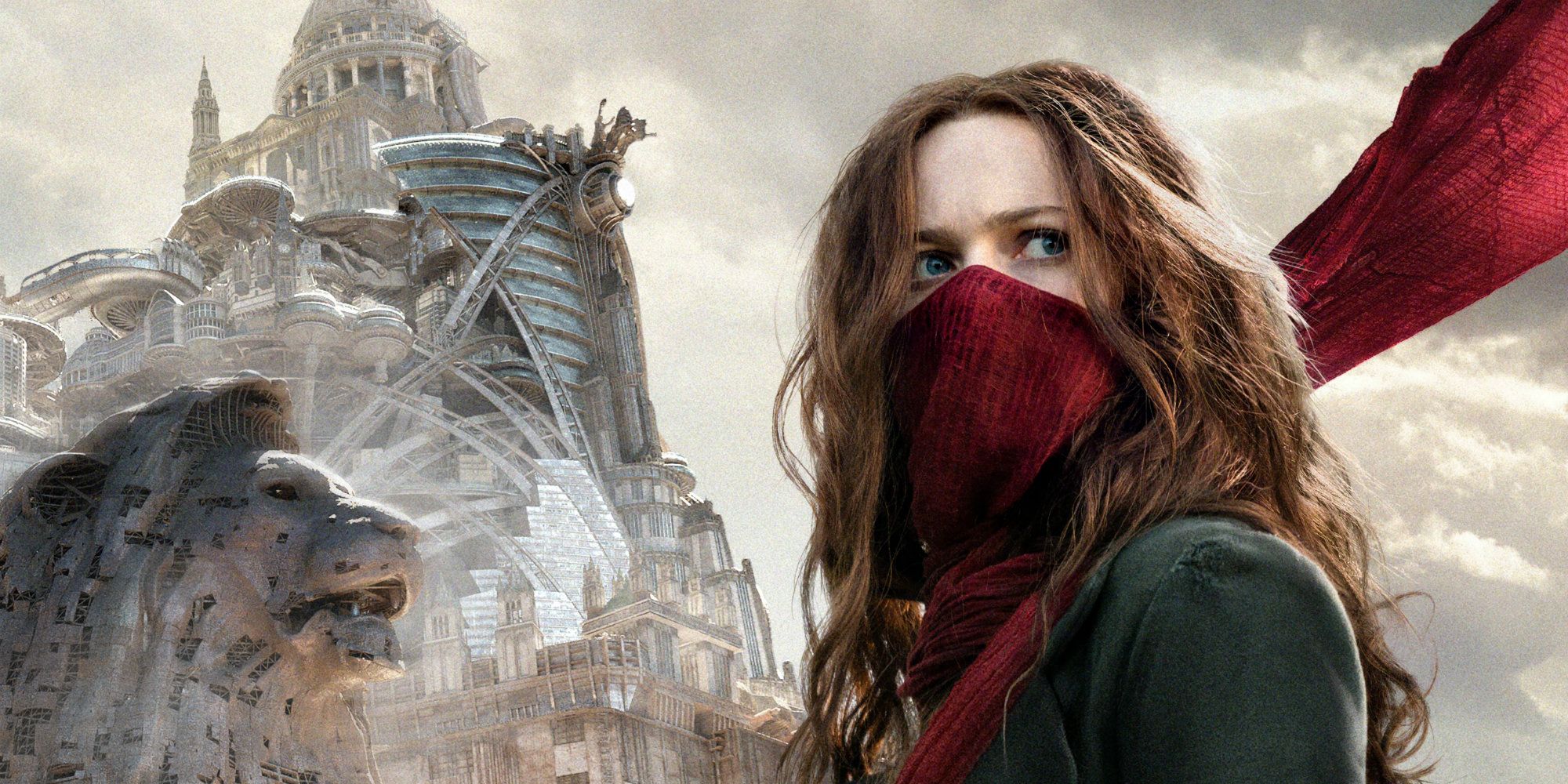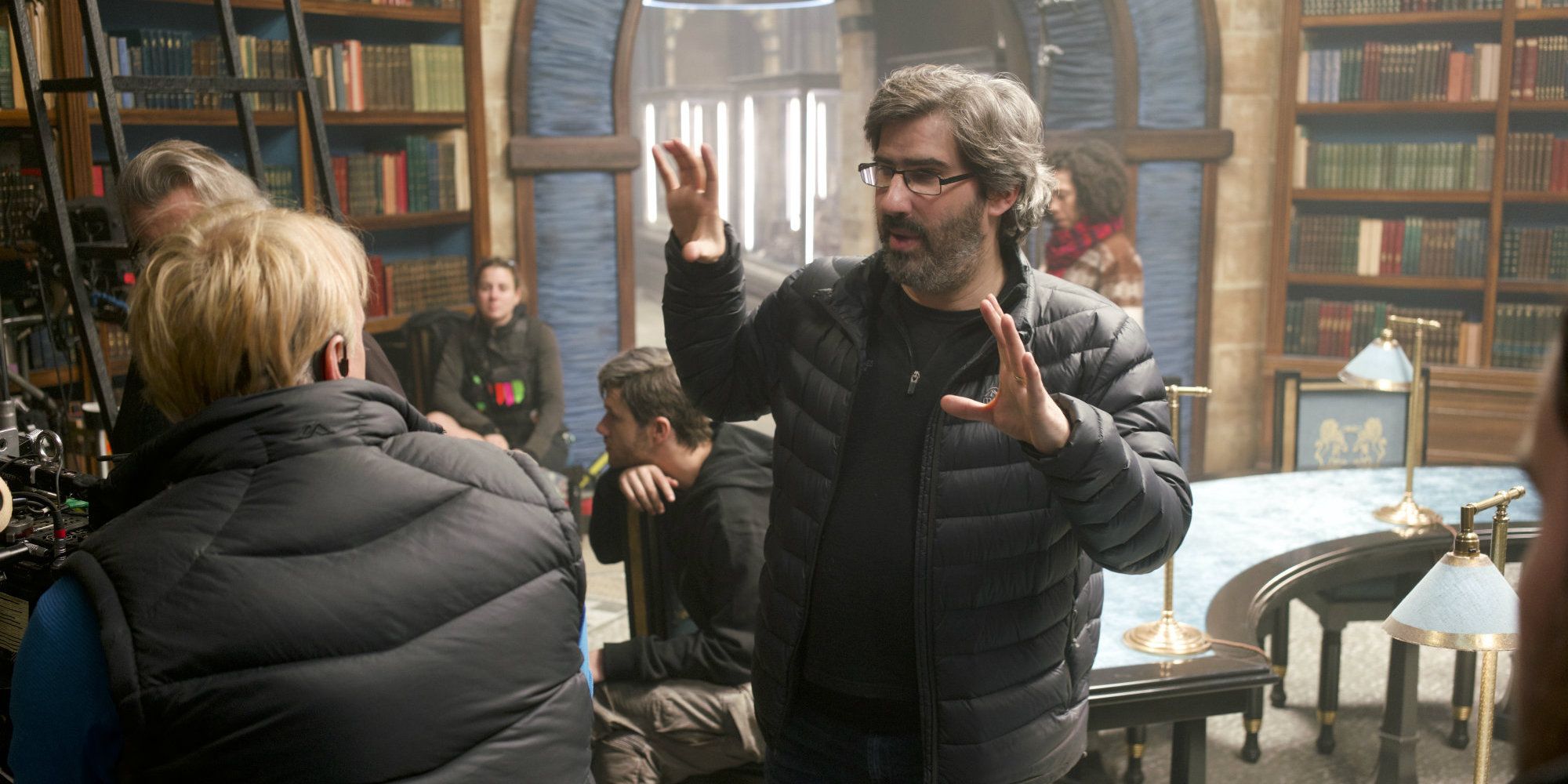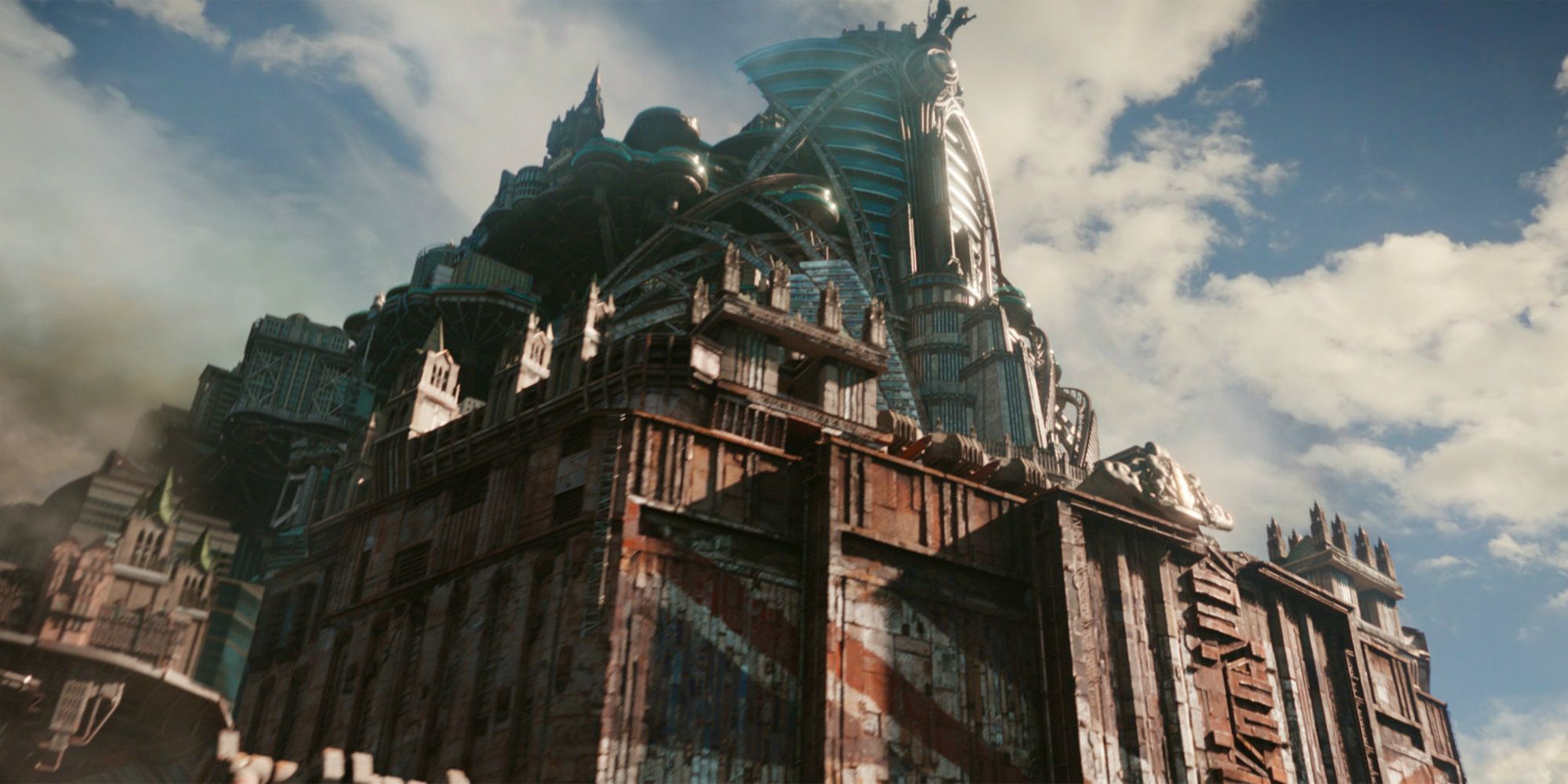
Mortal Engines is receiving some brutal reviews, which casts a cloud over Peter Jackson's passion project. Based on the children’s book series by Philip Reeve, Mortal Engines has been in development for several years, with Jackson now acting as a second-unit director instead of helming the film himself after first acquiring the film rights to the book series in 2009. For many years, fans believed the project would never materialize, much in the same way Jackson's adaptation of the Temeraire series never happened.
However, it's finally found its way onto the big screen, and it's coming from the people who made The Lord of the Rings and The Hobbit trilogies, with Christian Rivers at the helm making his directorial debut. Bas the promotional material and advertising campaigns made clear, this was still a Peter Jackson film, with Jackson acting as the introductory guide in trailers and explaining the world of Mortal Engines to potential audiences.
Related: Mortal Engines Video Reveals Stephen Lang as the Undead Soldier Shrike
Mortal Engines is a high-concept dystopian epic wherein the planet’s major cities have become mobile and roam the post-apocalyptic lands of the Earth in search of resources. The bigger cities, such as London, hunt down and absorb smaller settlements for resources, and it's the capture of a small town called Salthook, where a masked vigilante named Hester is in hiding, that kickstarts the plot. The concept is brilliant, but Mortal Engines has a lot working against it: it’s not a familiar property; it’s being released during a very busy month, which includes Spider-Man: Into the Spider-Verse, Bumblebee, Aquaman, and Mary Poppins Returns; and it has mixed reviews to sell itself with - and that's led to Mortal Engines receiving some brutal reviews.

The film is basically a steampunk Star Wars, with a bit of low-octane Gilliam and Gaiman on the side. By the end, in fact, the resemblances to George Lucas’s great creation become so distractingly obvious that it is difficult to credit that it isn’t some kind of intentional homage [...] There is no point in wondering exactly how the colossal engineering feat of putting a city on wheels and moving it about was achieved, especially in an avowedly tech-impoverished age. This film’s engines are spluttering.
Mortal Engines has been thoroughly storyboarded, make no mistake. But here lies the rub – lift-off, personality, and plainly put, direction, aren’t there. All the pieces of the movie slide mechanically into place and wait – and wait – for some spark of soul to turn up and animate them.
"It’s not just that Shrike stalks the earth like a lumbering Boris Karloff parody, nor is it that his name bears an unfortunate sonic resemblance to “Shrek!” when it’s screamed out loud in terror, but the creature also has a complicated backstory with Hester that takes up a good deal of the film’s middle third. This reviewer has not read the source material, and perhaps their relationship makes some sort of sense therein, but it would have taken some incredibly deft handling to make Shrike’s story hit the emotional beats it’s supposed to hit onscreen. Here it misses by a mile."
Much like the toasters, smartphones, and Minions statues that decorate the London Museum, Mortal Engines feels like the relic of a bygone era—a time when audiences cared about dystopian fiction, and “strong female characters” were little more than toughened blank slates. Mortal Engines might take place thousands of years in the future, but it’s a movie that’s stuck in the past [...] If you’re going to release a movie that few people are clamoring to see, following a trend that’s been near extinction for years, you have to do something to make it stand apart. Mortal Engines didn’t do that. It exists, and that’s pretty much it. The film might have some impressive visual effects, but the movie belongs in a museum.

Independent (Clarisse Loughrey)
The first Mortal Engines book arrived during a boom of teen fantasy novels that wrapped heavy metaphors in the folds of vast, intricate new worlds, sparked partially by the success of Philip Pullman’s His Dark Materials trilogy. The first book in that series, Northern Lights (or The Golden Compass in the US), received its own cinematic adaptation in 2007. However, while that version whittled down the novel to a soulless husk, Mortal Engines has made the nobler attempt here. Yet, in staying so faithful to Reeve’s world, it soon becomes too heavy a load to bear.
Little White Lies (Tom Huddleston)
Mortal Engines aims high and sometimes lands – the designers deserve immense praise for their witty, imaginative work on the strange-but-familiar city of London, where tube trains run vertically and beefed-up Bobbies patrol brick-lined walkways – while the sheer wealth of Reeve’s imagination is still wondrous to explore. But as a film, this is simply too unwieldy, too busy, too wildly disordered to ever be more than a fascinating curio.
‘Mortal Engines’ really is 10 percent inspiration and 90 percent slog, as characters leap unfeasibly out of planes on to bits of cities while a squad of rebel-fighter pilots straight out of ‘Star Wars’ buzz around. Its video-game aesthetic is awash with CGI dazzle – though if you had your fingers on the controls, you might have preferred to send them all under the tank treads after that spectacular opener.
Despite Stephen Lang's charged mo-cap performance, the cyborg figure Shrike highlights another problem. Shrike's resemblance to the Terminator joins echoes of Mad Max, Brazil, The Matrix, WALL-E and The Lord of the Rings in Rivers' homage-heavy staging; the climax, meanwhile, mimics the Star Wars series right down to one entirely unsurprising twist. You're left with the impression of a multi-film saga squeezed into one movie, leaving little to be developed in the proposed sequels. Bloated on its ambition, Mortal Engines bites off more than it can ingest.

There’s not enough plot to fuel Mortal Engines, and the number of problems that could be solved with a simple conversation grow astronomical, but the sheer adrenaline that the movie manages to juice out of its basic premise goes a long way. It’s a world that allows for a lot of weirdness, including a detour into a human meat market, the introduction of an insect-inspired car that hints at the variety of traction city designs that must exist, and the faint sense of metatextual cultural currency that’s inherent to the traction city version of London leaving Europe.
But it’s impossible to complain that parts of “Mortal Engines” seem familiar when so much of the movie is new and astounding. Christian Rivers, who won an Oscar for the visual effects of Peter Jackson’s “King Kong,” makes his directorial debut, and he’s been given free rein. (Jackson shares screenplay credit here with his frequent collaborators Fran Walsh and Philippa Boyens.) At no point does “Mortal Engines” seem hindered by budgetary concerns or a lack of inspiration. The world is intensely designed, with impressive details in nearly every scene, no matter how briefly we visit each locale. The lighting is sharp; the editing is confident. Every dollar of this movie seems to have found its way on screen.
Mortal Engines seems like a blockbuster movie that may ultimately under-perform at the domestic box office - if only due to the sheer level of box office competition it faces, not to mention families traveling for the holidays - but could potentially attract international viewers due to its effects-heavy concept and post-apocalyptic setting. Reviews haven’t been damning so much as critics feeling disappointed that Mortal Engines' execution doesn’t match up to the story’s impressive concept. However, in a season dominated by sequels, there may be much to appreciate in Mortal Engines.
Next: Why Peter Jackson Isn't Directing The Mortal Engines Movie
from ScreenRant - Feed https://ift.tt/2QtwgyH


0 Comments